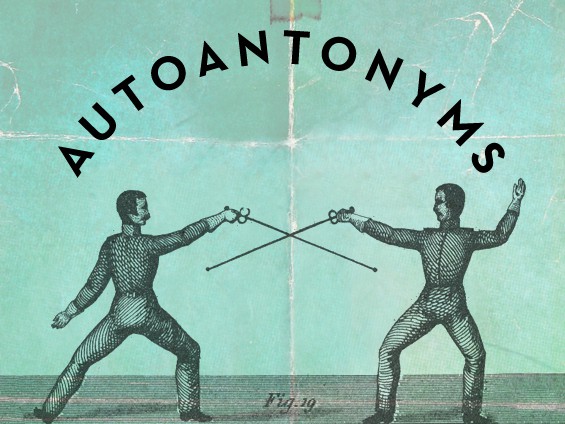Context Is Everything: 16 Words with Contradictory Meanings Explained
The English language is a notoriously difficult one to learn and master, because as English speakers we have so many words. Even with the simplest words, context matters. Today, we’ll take a look at some auto-antonyms (also called contranyms or Janus words), words that are their own opposite. Hopefully, after reading this article, you’ll be more vigilant when reading for the SAT, ACT, business, or pleasure. Context matters!
Bound
Depending on context, “bound” can mean “tied up, restricted, tethered to” or “heading to a particular place.” You might be bound to your family or bound to college.
Buckle
“Buckle” means “to fasten together,” as in “buckle your seatbelt,” but it also means “to collapse,” as in “her knees buckled under the weight of the world.”
Cleave
“Cleave” can mean “to cling together” or “to split apart.” A married couple might cleave to one another, while a lumberjack might cleave a log in two. From the “split apart” meaning we get the past participle “cloven,” as in “cloven hooves.”
Consult
In one context, “consult” might mean “to seek advice,” as in “the king consulted his advisors,” but in another situation, “consult” might mean “to offer advice.”
Dust
“Dust” can mean “to sprinkle with fine particles,” as in “the French toast was lightly dusted with powdered sugar,” or “to remove dust,” as in, “the maid dusted the mantelpiece.”
Egregious
Today, “egregious” mostly means “incredibly bad,” but it can also mean, and used to mean, “extremely good.”
Fast
“Fast” might mean “fixed,” as in “hold fast to the railing,” or it might mean “quickly,” as in “moving fast.”
Hew
Just like “cleave,” “hew” can mean “to cut in to” or “to hold to,” as in “to hew the log in two” or “to hew to the line.”
Inflammable
This one is misused all the time! It actually means “able to catch fire, flammable,” but most people seem to think it means “unable to catch fire, fireproof.”
Literally
Taken literally, “literally,” means “actually, really, truly.” But today, people sometimes use it ironically to emphasize a ridiculous, non-literal statement.
Off
Depending on context, “off” can mean “activated” or “deactivated,” as in “the alarm went off” or “I turned off the light.”
Overlook
In certain situations, “overlook” might mean “to gloss over or fail to notice,” as in “the detail that I overlooked,” but in other situations, it might mean “to watch over,” as in “the house overlooked the sea.”
Oversight
Sometimes, “oversight” means “an accidental error,” as in “due to an oversight, we’ll need to redo the report,” and other times, “oversight” means “close supervision.”
Refrain
Depending on context, “refrain” can mean “to keep from doing” or “to repeat,” as in “refrain from touching the glass” or “a musical refrain.”
Sanction
Soemtimes, “sanction” means “to allow or permit,” while other times, it means “to ban or penalize.”
Strike
“Strike” can mean “to refuse to work” or “to act quickly and decisively.”
* * *
Cool, right? For more about the English language, as well as tons of SAT and ACT prep tips, check out the rest of our blog. Looking for 1-on-1 ACT or SAT prep tutoring? Want to join an SAT or ACT group class? Contact us today!
